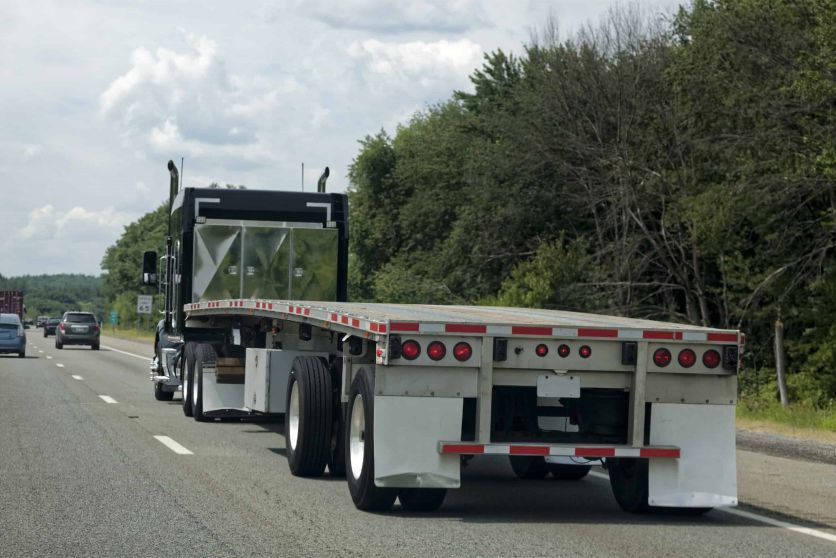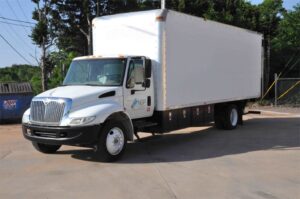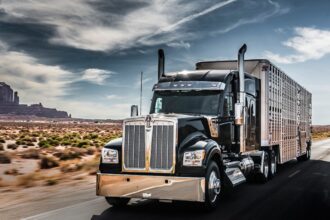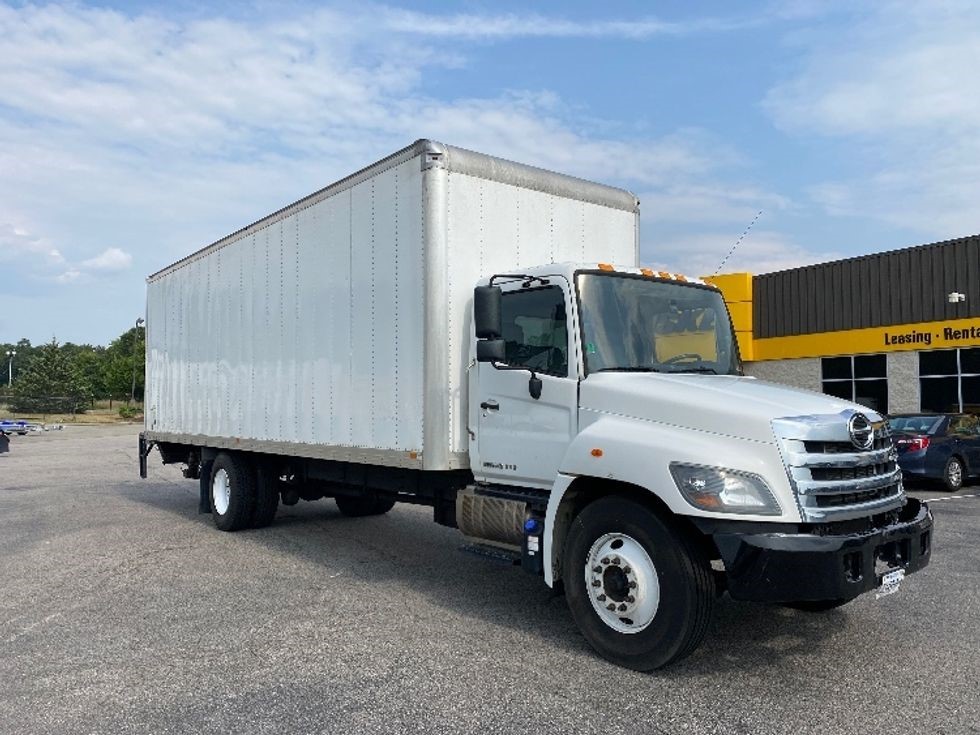Table of Contents
Yes! You need authority for your flatbed trailer.
Obtaining authority for your flatbed trailer is not just a legal requirement; it’s a critical step that can open up a world of opportunities and benefits. Check out the reasons.
Flatbed trailer authority grants you legal permission to operate your trailer within the confines of the law. Without it, you’re risking fines, penalties, and even the impoundment of your valuable equipment. So, it’s your gateway to hassle-free hauling.
But it’s not just about avoiding trouble; it’s also about seizing opportunities. Having authority over your flatbed trailer means you can tap into a broader range of cargo and clients.
Moreover, with authority, you can access specialized freight markets that may be more profitable. Oversized or hazardous cargo, for instance, often requires carriers with specific authority endorsements, which can lead to higher-paying jobs.
In essence, flatbed trailer authority is your ticket to a thriving, legally compliant, and lucrative hauling business. Don’t wait; obtain it and unlock the full potential of your flatbed trailer today.
To get authority for your flatbed trailer and operate it legally, you typically need to follow these steps in the United States:
1. Register Your Business
To get authority for a flatbed trailer, register your business.
Establishing a business entity is an imperative step for entrepreneurs, and you must proceed with unwavering determination. This action serves as an impenetrable fortress, segregating your personal assets from any potential business liabilities.
The Limited Liability Company, or LLC, can be on your radar due to its reputation for flexibility and formidable liability protection. This structure empowers you with the privilege of limited personal liability while granting substantial operational autonomy.
In contrast, the Corporation, be it a C-Corp or an S-Corp, represents the epitome of liability protection.
Choosing the most fitting structure for your venture necessitates a deep understanding of your business goals and your appetite for risk.
2. Obtain an EIN
To establish a business entity in the United States, ensure you secure an Employer Identification Number (EIN) from the Internal Revenue Service (IRS). Think of the EIN as your business’s equivalent of a social security number. This unique identifier is crucial for numerous tax-related matters, making it a fundamental prerequisite.
The EIN serves various purposes, such as facilitating tax reporting, hiring employees, and opening business bank accounts. It is the linchpin for tracking your company’s financial activities with federal authorities and ensuring compliance with tax regulations.
Obtaining an EIN involves a straightforward application process through the IRS, typically accessible online. This essential identifier is a vital component of your business’s legal and financial framework.
3. Secure a USDOT Number
To obtain authority for a flatbed trailer, secure a USDOT number.
When it comes to towing trailers, regulations are crucial. The size and weight of your trailer play a pivotal role in determining whether you require a USDOT (United States Department of Transportation) number. This number is a legal prerequisite for you if you want to engage in interstate transportation of goods within the United States. It serves as a means of monitoring and ensuring safety compliance. Obtaining a USDOT number is a responsible step for trailer owners, as it helps uphold transportation standards and promotes road safety during interstate journeys. Always be aware of these regulations to stay in compliance with the law.
4. Get a Motor Carrier (MC) Number
To secure authority for a flatbed trailer, get a motor carrier number
If you’re actively engaged in interstate commerce, acquiring an MC (Motor Carrier) number from the Federal Motor Carrier Safety Administration (FMCSA) is crucial. The FMCSA regulates the safety and reliability of commercial motor carriers in the United States. Obtaining an MC number is a legal requirement for transporting goods for hire across state lines. It signifies compliance with federal transportation regulations, ensuring the safety of your operations and those who share the road with you. Failure to secure an MC number could result in fines or penalties, making it an essential step in your business endeavors.
5. Acquire Insurance
To get authority for a flatbed trailer, acquire insurance.
If you’re looking to acquire insurance for your cargo transportation business, it’s crucial to understand the two key types: liability insurance and cargo insurance. Liability insurance shields you from financial burdens in the event of accidents or damages caused during transit. Cargo insurance, on the other hand, safeguards the goods you transport. The specific requirements for these insurance types depend on your location, as each state may have unique regulations, and also on the nature of the cargo you transport.
6. Obtain Operating Authority
To acquire authority for a flatbed trailer, obtain operating authority.
When it comes to acquiring authority for your transportation operations, you must understand the nuances. Depending on your specific needs, you have three primary options:
Common Carrier Authority
If you intend to transport general freight for various clients, this authority is crucial. It permits you to offer your services to the public at large.
Contract Carrier Authority
This type of authority is tailored for specific contracts or agreements with particular clients. It’s ideal if you plan to serve a limited number of clients exclusively.
Broker Authority
If you plan to facilitate shipments between shippers and carriers without physically transporting goods yourself, broker authority is necessary. You can act as an intermediary, connecting cargo with carriers.
To obtain any of these authorities, you need to go through the Federal Motor Carrier Safety Administration (FMCSA). It regulates and oversees transportation operations to ensure safety and compliance with regulations. The application process involves specific documentation, fees, and compliance checks, so make sure you navigate it carefully.
7. Adhere to Safety Requirements
To obtain authority for a flatbed trailer, adhere to safety requirements.
Ensure your equipment (including your flatbed trailer) meets all safety standards set by the Federal Motor Carrier Safety Administration (FMCSA). You, as the owner-operator, must take responsibility for these standards. This involves conducting routine vehicle inspections and adhering to a strict maintenance schedule. Compliance is not just a legal obligation but a fundamental aspect of ensuring your safety on the road and that of others. By maintaining your equipment meticulously, you may not only meet regulatory requirements but also enhance your reputation as a responsible and reliable operator.
8. Meet Driver Qualifications
To quickly acquire authority for a flatbed trailer, meet driver qualification.
As the prospective trailer driver, you play a pivotal role in safety and compliance. So you must fulfill all driver qualifications, which may include acquiring a Commercial Driver’s License (CDL) if your vehicle class requires it. This licensing process involves rigorous testing and training to ensure you possess the skills and knowledge necessary for safe operation. Not only is this a legal requirement, but it also underscores your commitment to professionalism and safety, ultimately enhancing your qualifications and reputation in the industry.
>>>GET SMARTER: Flatbed Trailer Business Checklist
9. Maintain Compliance
To get authority for a flatbed trailer, maintain compliance.
Continuously monitor and ensure compliance with federal and state regulations related to transportation, safety, and environmental standards. These guarantees guarantee your operation’s legality, safety, and sustainability. Federal and state regulations exist to safeguard public safety, protect the environment, and maintain a level playing field for businesses. Compliance minimizes legal risks, potential fines, and reputational damage. Moreover, it showcases your commitment to responsible business practices, which can attract customers and partners who value ethical and compliant operations.
10. Keep Records
To fully establish your flatbed trailer, keep records.
Maintain accurate records of your operations, including trip logs, maintenance records, and financial documents.
Maintaining meticulous records is the bedrock of a well-managed operation. It enables you to track the history and performance of your assets, ensuring it operates at peak efficiency. Trip logs provide insight into routes, fuel consumption, and driver behavior, helping you optimize operations. Maintenance records ensure vehicles remain safe and reliable, reducing downtime and repair costs. Financial documents, such as invoices and expense reports, facilitate budgeting and tax compliance.
Recap
In the world of flatbed trailers, authority is your essential ticket to safety, legality, and success. You need to obtain permits, licenses, and certifications to operate your flatbed trailer confidently and within the law.
Start by getting a Commercial Driver’s License (CDL) and any necessary endorsements for your specific cargo. This is your foundation, showcasing your expertise in flatbed trailer operation.
But don’t stop there. Stay current with state and federal regulations. Keeping your authority up-to-date helps you avoid fines and delays.
Join industry associations and networks for support and knowledge-sharing. Authority isn’t just about paperwork; it’s about being a trusted, skilled flatbed trailer operator.
Embrace the process, stay informed, and remember that with authority comes the power to drive your flatbed trailer safely and successfully.



















